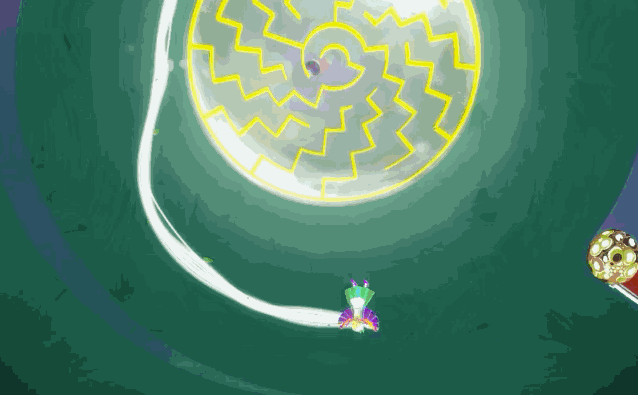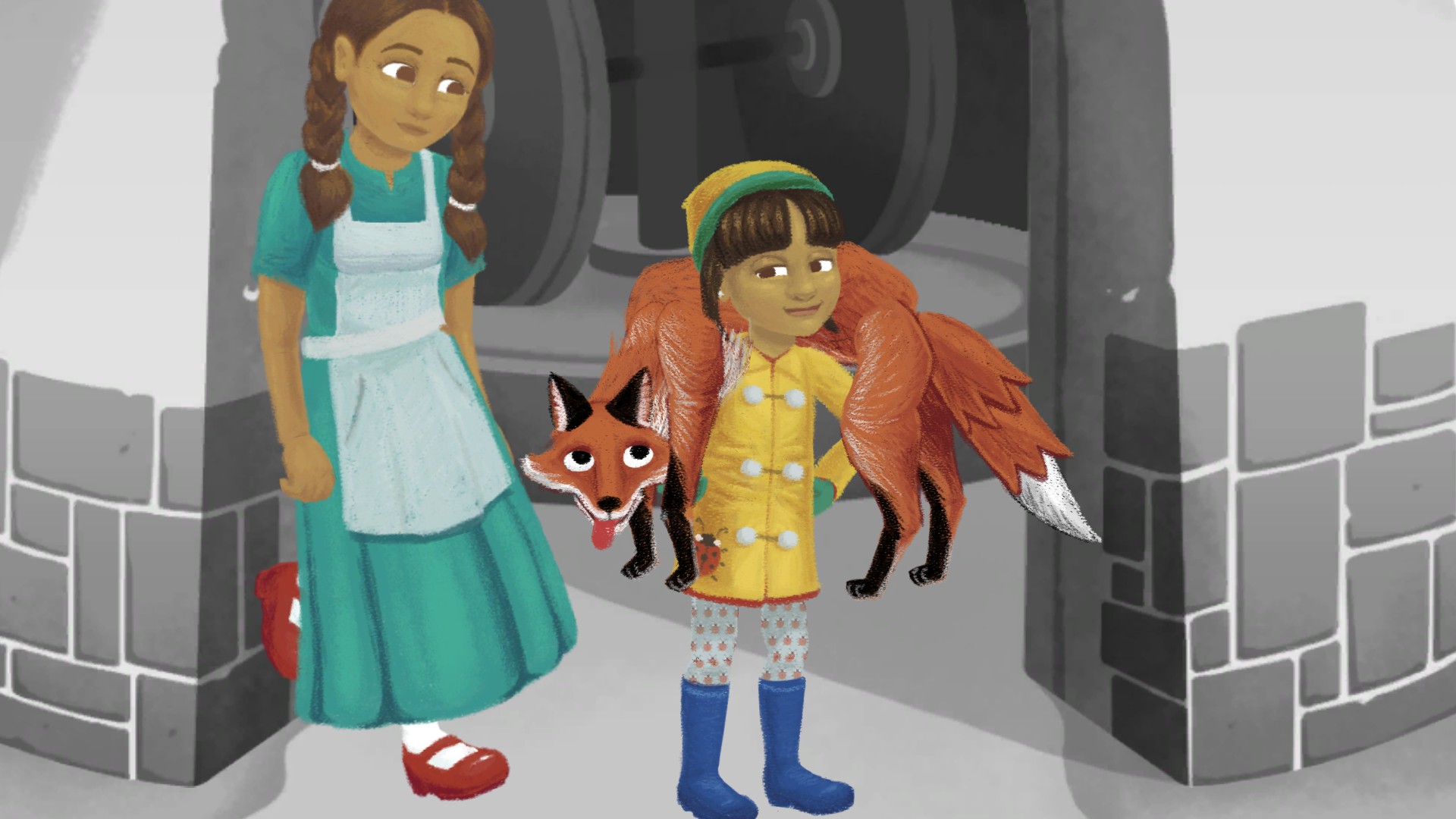This article is part of a collaboration with iQ by Intel.
Gravity Ghost is a game in which you cannot fail. Charming, reassuring, and peaceful, it focuses on a girl named Ilona, who has been charged with reuniting spirits and their bodies in the afterlife.
Playing it feels more like a zen experience than a test of skill. Ilona uses the gravitational pull of planets to navigate the depths of space and collects items and spirits as objectives.
It can be challenging. However, where other puzzle games might punish the failure to solve a challenge, Gravity Ghost encourages players to try, and try again.

Creator Erin Robinson Swink tells me it was a very different game in its early stages.
“Early builds of the game still included turrets and ships shooting at the player, and dodging bullets was actually sort of fun,” she says. “But it felt wrong for the experience I wanted to create, i.e. one that was lonely, introspective, and melancholy.”
Erin eventually created a gravity system that not only serves as Gravity Ghost’s defining mechanic, but also demonstrated the unique way video games can deliver a narrative.
“I felt that punishing players while they were trying to learn was the wrong thing to do,” she says. This allowed her to connect players with Ilona’s journey. Just as Ilona is new to this spiritual afterlife, players are new to the game. Ilona becomes familiar with the gravity as the player does. Information is drip-fed to the player, and both they and Ilona experience it in tandem.
This, says Erin, is what distances games from other forms of entertainment. Games are interactive, and by using very deliberate mechanics to unite both the player and the character in a game, we’re able to see and experience a new narrative without the familiar three-act structure of the average book or film.
“The more games begin to distance themselves from traditional forms of storytelling, the more we can realize their potential to connect us with a narrative on a much deeper level,” she says.

“We’ve always loved to see ourselves in a story, but I think that games are what let us take that embodiment to the next level,” she says, citing a review of Gravity Ghost that found a connection between gravity and her turbulent home life. No matter how bad things were, her feet would always return to solid ground. “I loved reading that because it meant that people not only believed that games could be these layered, emotionally complex experiences—but that they expected it. That’s huge.”
This idea of games avoiding familiar narrative structures has been a central focus of Erin’s work as a game developer. She’s created five games over the past ten years and founded her own independent studio, which gives her a great deal of creative freedom.
“I can pursue a unique gravity mechanic that other developers may have overlooked because it seemed too difficult,” she says. “I can spend a year animating a story, and I can put in a giant space deer in tube socks without having to justify my decisions to someone.”
However, she tells me there’s no guarantee that any one idea will pan out, and one can invest months in a project before throwing it out in favor of something new. What is important is that one continues to always try again.

Gravity Ghost in particular addresses this idea with bravado. Rather than something to be punished or lamented, failure can be spun into a necessary part of discovery and exploration. It is an essential part of success, and our creativity and hope can serve as the gravity that keeps us grounded.
In order to feel their effects, all we have to do is jump.
